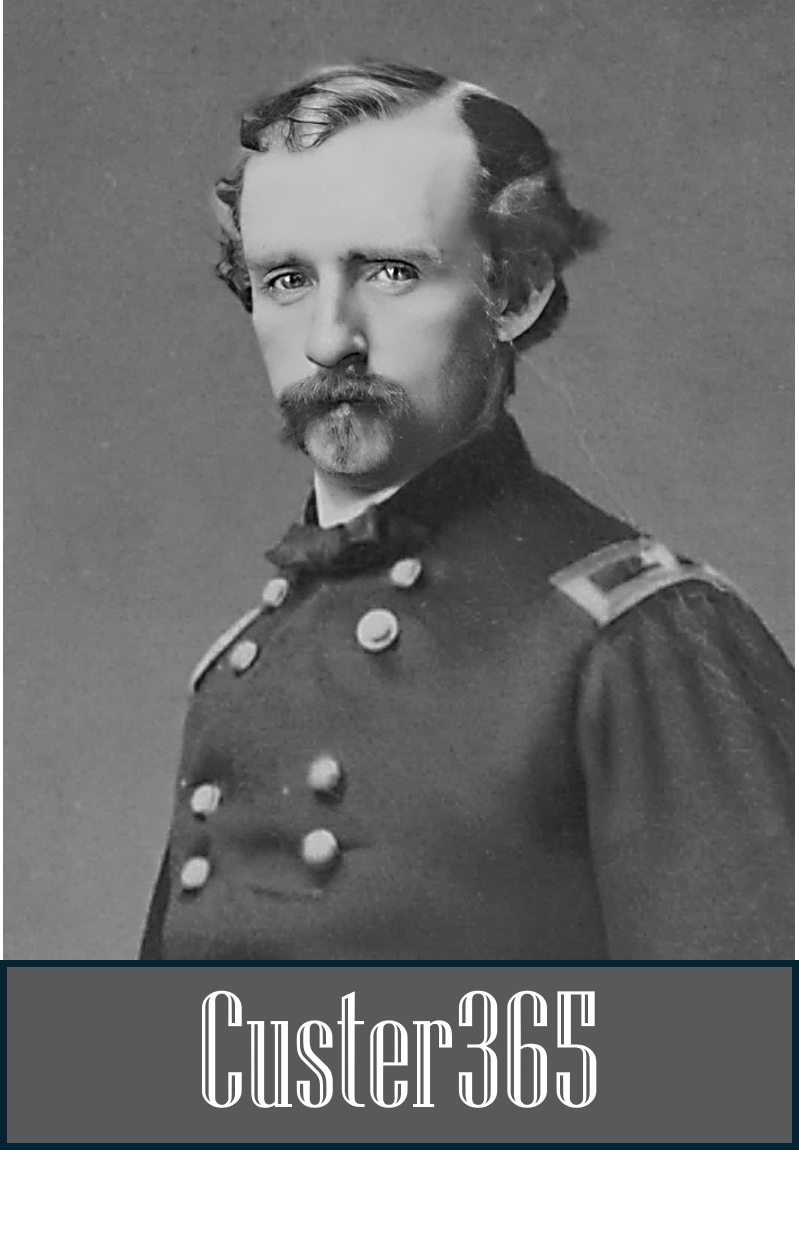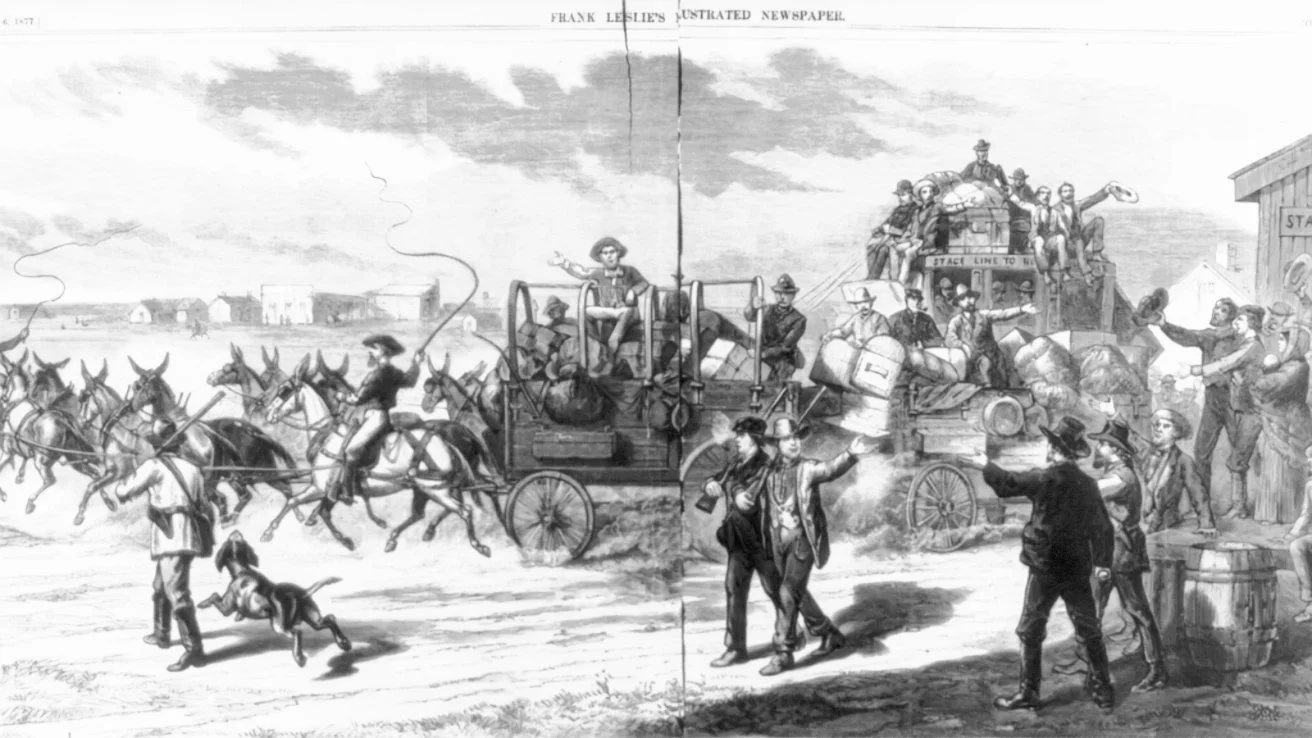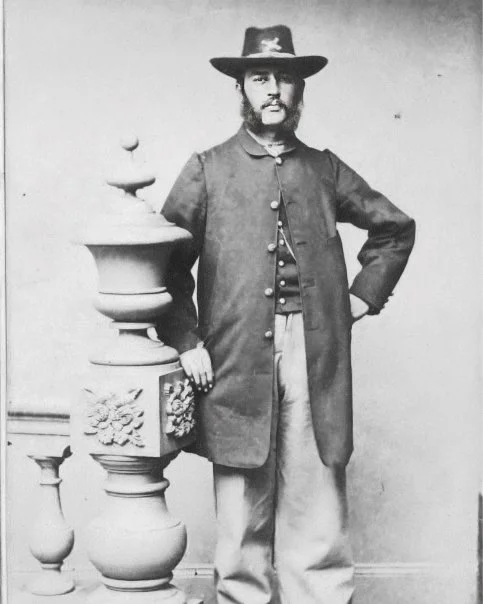AUG 2: GOLD DISCOVERED! Maybe
On this date in 1874, gold is reportedly discovered by civilian miners accompanying Lt. Col George Custer and the 1874 Black Hills Expedition. Custer’s comment that gold was found “right from the grass roots” in the Black Hills, was later reported by the New York Times. Reporters embedded with the expedition filed stories about the gold discovery, and within a week headlines in dozens of newspapers across the nation spread the news.
The aftermath created a gold rush into the Black Hills. But the circumstances surrounding the initial find are filled with questions.
Miners rush to the Black Hills in this 1877 illustration in Leslie’s Weekly. (Credit: Library of Congress)
One critical historical account comes from the University of Minnesota and its Kirby Teaching Resources guide on the 1874 Black Hills Expedition. In it, the author claims that Custer moved the group so fast through the area that the geologist, Newton Horace Winchell, “was dismayed at how little time he had for reconnaissance.”
It was on the plains east of present-day Custer, S.D., that the party claimed gold was discovered. But the amount found “remains highly questionable” as the discovery did not significantly impact camp life. No soldiers abandoned their duties to dig for gold. It was a far cry from the situation in California in the 1850s when so many soldiers quit to search for gold that the U.S. Army began granting furloughs to them to avoid a mass exodus.
The Expedition’s two miners, Horace N. Ross and William T. McKay, and a group of teamsters, including its only female member “(Sarah Campbell, a cook who had won her freedom from slavery in a lawsuit at the age of 12)”, organized into a corporation to make a claim if the land in the Black Hills eventually opened for settlement, according to the guide. But whatever gold that was discovered on the banks of French Creek in August 1874 was so scant, every teamster and the two miners returned to Fort Lincoln at the Expedition’s conclusion.
Fred Power, a “stringer” correspondent with the Saint Paul Daily Press, tagged along with miners Ross and McKay and kept a diary with vivid descriptions of “the valley’s beauty, wildflowers, and streams.” He noted that gold and silver had been found, but his diary failed to mention any discoveries on August 1 or 2, 1874. Others, however, later claimed that the most significant finds were made on those dates.
In his dispatch of August 2, Power simply wrote, “Oh! I forgot to say gold has been discovered,” but he made no claim of it being in significant amounts.
President Grant’s son, Frederick. (Credit: Library of Congress)
One skeptic of the claim that gold had been discovered had connections high up in Washington, D.C. Lt. Col. Frederick Grant, second-in-command to Custer, was President Ulysses Grant’s son. The University states that Grant, in his official expedition report, “wrote that miners ‘showed the same pieces every day’, an amount he estimated at roughly two dollars’ value. He concluded that, ‘I don’t believe that any gold was found at all.’”
Custer would later tangle with President Grant over testimony he gave before Congress in March and April of 1876 implicating Grant’s brother, Orvil, in a trading post scandal at U.S. military forts in the western part of the nation.
https://kirkby.esci.umn.edu/history/1874-black-hills-expedition/



